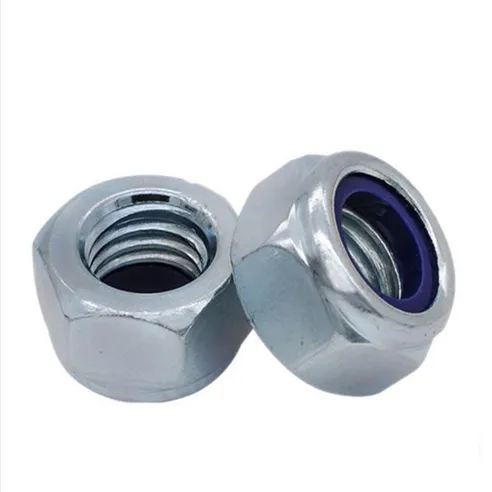car bolts and nuts
feb . 11, 2025 13:09 Back to list
car bolts and nuts
Fasteners, specifically car bolts and nuts, play a pivotal role in the safety and efficiency of all vehicles on the road today. These small yet critical components are foundational elements in the assembly and maintenance of automotive systems, and understanding their importance goes beyond simple mechanics.
Professionals consistently rely on OEM (Original Equipment Manufacturer) specifications when selecting and applying car bolts and nuts to maintain a vehicle's structural and operational integrity. Adhering to these specifications supports engine function, braking systems, and even body components to perform as intended. Moreover, the influence of technological advances in vehicle design has seen an increased application of lightweight and alternative materials. As vehicles become more aerodynamic and efficient, the demands on fasteners have also evolved. The need for lightweight components without compromising strength has led to innovative fastener designs, challenging engineers to push boundaries while maintaining safety and compatibility with newer vehicle parts. The realm of electric vehicles (EVs) also presents new challenges for automotive fasteners. EVs often require special fasteners that can withstand unique load and thermal conditions not seen in traditional vehicles. Bolt and nut manufacturers are continually innovating to keep up with the rapid advancements in electric vehicle technology. Research into new materials and manufacturing methods continues to enhance the performance of car fasteners. Engineers and researchers work tirelessly to discover alloys and composite materials that offer improved heat resistance and reduced weight without sacrificing strength. In conclusion, the seemingly unassuming car bolts and nuts hold a world of complexity, expertise, and essential functionality within their design. Their reliable performance is the result of meticulous engineering and constant innovation, underscoring the necessity of professional acumen in their selection, application, and maintenance. As the automotive industry continues its rapid evolution, the expertise brought by those specializing in the fastener niche will remain a critical lynchpin in ensuring safety, efficiency, and performance in vehicle design and operation.


Professionals consistently rely on OEM (Original Equipment Manufacturer) specifications when selecting and applying car bolts and nuts to maintain a vehicle's structural and operational integrity. Adhering to these specifications supports engine function, braking systems, and even body components to perform as intended. Moreover, the influence of technological advances in vehicle design has seen an increased application of lightweight and alternative materials. As vehicles become more aerodynamic and efficient, the demands on fasteners have also evolved. The need for lightweight components without compromising strength has led to innovative fastener designs, challenging engineers to push boundaries while maintaining safety and compatibility with newer vehicle parts. The realm of electric vehicles (EVs) also presents new challenges for automotive fasteners. EVs often require special fasteners that can withstand unique load and thermal conditions not seen in traditional vehicles. Bolt and nut manufacturers are continually innovating to keep up with the rapid advancements in electric vehicle technology. Research into new materials and manufacturing methods continues to enhance the performance of car fasteners. Engineers and researchers work tirelessly to discover alloys and composite materials that offer improved heat resistance and reduced weight without sacrificing strength. In conclusion, the seemingly unassuming car bolts and nuts hold a world of complexity, expertise, and essential functionality within their design. Their reliable performance is the result of meticulous engineering and constant innovation, underscoring the necessity of professional acumen in their selection, application, and maintenance. As the automotive industry continues its rapid evolution, the expertise brought by those specializing in the fastener niche will remain a critical lynchpin in ensuring safety, efficiency, and performance in vehicle design and operation.
Next:
Latest news
-
Wire Bolts Company | Premium Industrial Fasteners
NewsAug.03,2025
-
Top Wire Bolts Suppliers | AI-Optimized Fast Delivery
NewsAug.02,2025
-
Top Metric Wood Screw Companies | Durable & Reliable
NewsAug.01,2025
-
Premium Lawn Mower Handle Bolts Supplier | Fast Delivery
NewsJul.31,2025
-
Premium Silver Screws Supplier | High-Conductivity Fasteners
NewsJul.31,2025
-
Silver Screws Supplier: High-Quality Fasteners for Various Industries
NewsJul.30,2025
